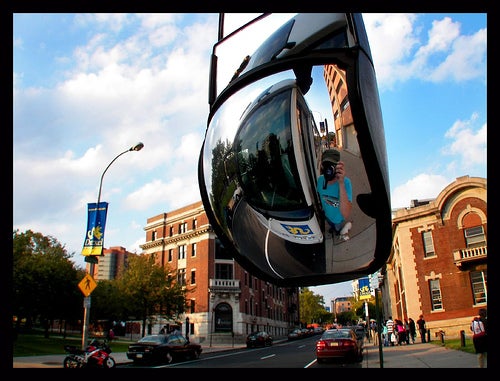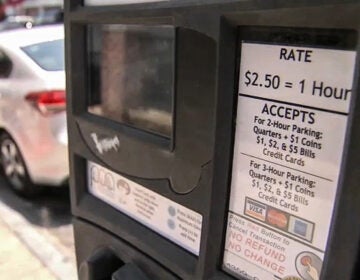Hospitals, universities getting around the SEPTA strike

Nov. 4
By Anthony Campisi
For PlanPhilly
With SEPTA workers manning picket lines, major city employers have implemented contingency plans to give their employees a way of getting to work.
The Transport Workers Union Local 234, which represents 5,100 workers in the City Transit Division, declared a work stoppage beginning 3 a.m. on Tuesday. More than 450,000 riders take affected bus, trolley and subway lines every weekday.
Negotiations broke down after the union turned down a five-year offer that would have given workers a $1,500 bonus the first year, a 2.5 percent wage increase the second year and 3 percent increases in years four and five, as well as an increase in pension payments from 5 to 11 percent. Workers’ health care contributions would have remained constant at 1 percent.
Major employers have dispatched a small fleet of shuttles throughout the city to replace at least some of the lost capacity.
The most extensive efforts seem to focus around area colleges and major hospitals.
Temple University is running buses from Broad Street Line stops to both its main campus and to Temple University Hospital. The Penn Health System is running buses at stops throughout West Philadelphia along Lancaster and Woodland avenues and Spruce and Chestnut streets, while the Albert Einstein Medical Center is running buses to local regional rail stops.
Drexel and the University of Pennsylvania are also running shuttles from the 69th Street Terminal to pick up and drop off riders of suburban buses and trolley lines, as well as PATCO stations in Center City.
One of the only major hospitals not running its own transportation service is Thomas Jefferson University Hospital, though a spokeswoman said that it hasn’t experienced above-average absences.
The city is getting involved in the effort, providing buses for city workers from distant parking lots to the Municipal Services Building.
Suburban transit agencies are also stepping up to replace service on SEPTA’s Frontier Division, which has been idled as a result of the strike.
Workers at the Partnership TMA, a transit agency that serves Montgomery County, went to area bus stops to inform riders of the strike.
“We did catch several people waiting at bus stops in North Wales,” said operations manager Anthony Johnson.
Though the Partnership TMA isn’t increasing service on its own routes, Johnson said that it would draw up plans to increase service on Monday if a contract seems far off. “It really caught us off guard,” he said.
The private sector seems to be taking a more hands-off approach.
Though the Greater Philadelphia Hotel Association is running buses along Market and Broad streets to bring workers to Center City hotels, Mark Licidello of Aramark said that the food services provider is focusing on encouraging carpooling and disseminating information about the strike.
“It really hasn’t hurt us that much” in terms of staffing, he said, adding that the company is encouraging its divisions to be understanding if workers have trouble getting in on time.
It’s unclear how long these efforts will be needed. Though SEPTA spokeswoman Jerri Williams said Tuesday that the authority was prepared to return to the bargaining table, TWU has yet to schedule talks.
Contact the reporter at campisi.anthony@gmail.com
WHYY is your source for fact-based, in-depth journalism and information. As a nonprofit organization, we rely on financial support from readers like you. Please give today.






